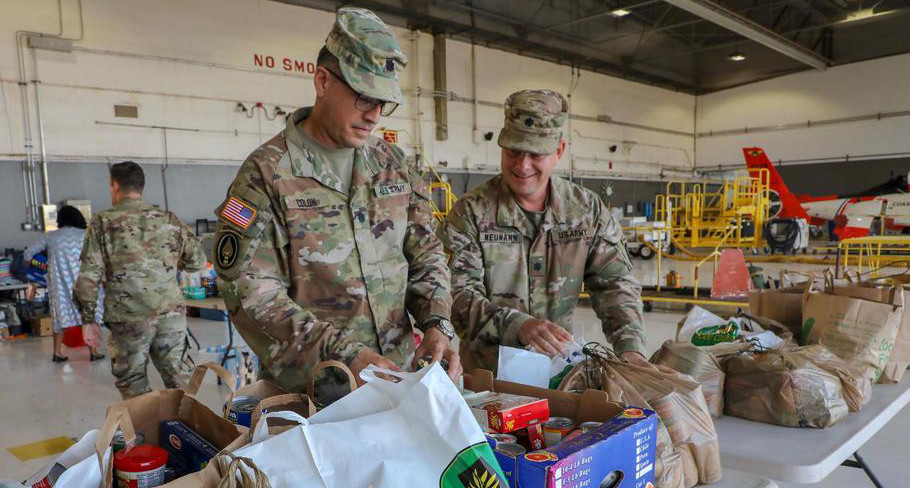
How looming government shutdown impacts U.S. military, Taliban frees U.S. citizen from Afghan prison, Netanyahu to meet with Trump amid pressure to end war, and U.S. considers selling missiles to Ukraine.
1. Barring a last-minute compromise between Republicans and Democrats in Congress, the federal government will shut down on Oct. 1 and force the nation’s service members to report for duty without pay. The impact of a federal funding lapse on the military could be wide-ranging. Service members would miss at least one paycheck if a funding deal is not reached by Oct. 15, and certain programs and services would come to a halt, including drills for the National Guard and nonessential travel. The Defense Department has not released a contingency plan for a potential shutdown but guidelines issued in previous years offer a preview of how troops could be affected.
2. The Taliban on Sunday freed a U.S. citizen from an Afghan prison, weeks after they said they had reached an agreement with U.S. envoys on a prisoner exchange as part of an effort to normalize relations. The deputy spokesperson for the Taliban Foreign Ministry, Zia Ahmad Takal, identified the man as Amir Amiri. He did not say when Amiri was detained, why, or where. An official with knowledge of the release said Amiri had been detained in Afghanistan since December 2024 and was on his way back to the U.S. The official spoke on condition of anonymity because they were not authorized to discuss the details with the media. Qatar facilitated Amiri's release in the latest diplomatic achievement resulting from its security partnership with the U.S. that has secured the freedom of four other Americans from Taliban detention this year. The energy-rich nation on the Arabian Peninsula also helped in releasing a British couple who were imprisoned for months.
3. Days after his defiant speech at the United Nations rejecting demands to end the war in Gaza, Israeli Prime Minister Benjamin Netanyahu is set to confer with his most important supporter. But Monday’s meeting with President Donald Trump in Washington comes at a tenuous moment. Israel is increasingly isolated, losing support from many countries that were long its steadfast allies. At home, Netanyahu’s governing coalition appears more fragile than ever. And the White House is showing signs of impatience. The question now is whether Trump, who has offered steadfast backing to Netanyahu throughout the war, will change his tone and turn up the pressure on Israel to finally wind down the conflict.
4. Russia unleashed a barrage of drones and missiles on Ukraine overnight into Sunday, killing at least four people, with Kyiv suffering the heaviest assault. It was the first major bombardment since an air attack on Ukraine’s capital left at least 21 people dead last month. Separately, U.S. Vice President JD Vance said the U.S. was considering selling Ukraine Tomahawk cruise missiles. Tymur Tkachenko, head of the Kyiv City Administration, confirmed Sunday’s casualties via Telegram and said that 10 others were wounded in the attack, which targeted civilian areas across the city. A 12-year-old girl was among the dead. Thick black smoke could be seen rising from a blast near the city center.
5. The foreign ministers of North Korea and China agreed to deepen bilateral ties and resist hegemonism or unilateralism, a likely reference to their pushbacks against the United States. Their meeting in Beijing on Sunday came about three weeks after North Korean leader Kim Jong Un and Chinese President Xi Jinping held their first summit in more than six years and pledged mutual support and enhanced cooperation. Kim and Xi earlier attended a massive Beijing military parade marking the end of the World War II, with other world leaders including Russian President Vladimir Putin. The joint appearance of Kim, Xi and Putin, the first of its kind, displayed a potential three-way unity against the United States, though it’s unclear how far China would go in such an anti-U.S. partnership.
- Security

